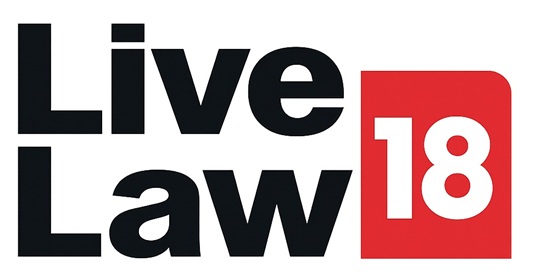Summary:
On January 21, 2010, the Supreme Court ruled in Citizens United v. Federal Election Commission, overturning the earlier decision in Austin v. Michigan State Chamber of Commerce, which had allowed prohibitions on independent expenditures by corporations. The Court also overturned part of McConnell v. Federal Election Commission, which had banned corporations from making electioneering communications. However, the Court upheld the reporting and disclaimer requirements for independent expenditures and electioneering communications. The ruling did not affect the ban on corporate contributions.
Background:
The Federal Election Campaign Act prohibits corporations and labor unions from using their general treasury funds for electioneering communications or speech that expressly advocates for the election or defeat of a federal candidate (2 U.S.C. §441b). An electioneering communication is defined as any broadcast, cable, or satellite communication that is publicly distributed, refers to a clearly identified federal candidate, and is made within 30 days of a primary or 60 days of a general election (2 U.S.C. §434(f)(3)(A) and 11 CFR 100.29(a)(2)).
In January 2008, Citizens United, a non-profit corporation, released a film about then-Senator Hillary Clinton, a candidate in the Democratic Party’s 2008 Presidential primary elections. Citizens United wanted to pay cable companies to make the film available for free through video-on-demand, allowing digital cable subscribers to select programming from various menus, including movies. Citizens United planned to make the film available within 30 days of the 2008 primary elections but feared that the film would be covered by the Act’s ban on corporate-funded electioneering communications, which are the functional equivalent of express advocacy, thus subjecting the corporation to civil and criminal penalties.
Citizens United sought declaratory and injunctive relief against the Commission in the U.S. District Court for the District of Columbia, arguing that the ban on corporate electioneering communications at 2 U.S.C. §441b was unconstitutional as applied to the film and that the disclosure and disclaimer requirements were unconstitutional as applied to the film and the three ads for the movie. The District Court denied Citizens United a preliminary injunction and granted the Commission’s motion for summary judgment. The Supreme Court noted probable jurisdiction in the case.
Supreme Court Decision:
The Supreme Court determined that narrowly addressing whether the §441b ban applied to the film would chill essential political speech. Instead, the Court considered the broader validity of the Act’s ban on corporate expenditures. They emphasized that §441b’s restriction on corporate independent expenditures and electioneering communications constitutes a ban on speech, and political speech must prevail against laws that would suppress it. The Court subjected such laws to “strict scrutiny,” requiring the government to prove that the restriction serves a compelling interest and is narrowly tailored. The Court found the justifications for corporate expenditure restrictions unconvincing, overturning Austin v. Michigan State Chamber of Commerce.
In Austin, the Court justified limiting corporate political speech to prevent the “corrosive and distorting effects of immense wealth.” However, the Court now found that this rationale interferes with the “open marketplace of ideas” protected by the First Amendment. They asserted that the First Amendment prohibits Congress from penalizing citizens or associations for engaging in political speech. They also rejected the anticorruption rationale as insufficient to justify banning independent corporate political speech, distinguishing it from contribution limits upheld in Buckley v. Valeo.
The Court further dismissed the notion that corporate independent expenditures should be limited to protect dissenting shareholders, stating that such issues can be resolved through corporate democracy.
Citizens United also contested the Act’s disclaimer and disclosure provisions as applied to the film and three ads. The Act mandates disclaimers on televised electioneering communications and disclosure of expenditures over $10,000. The Court upheld these requirements, noting they burden speech without capping campaign activities or preventing anyone from speaking, thus being constitutional as applied to the film and ads.
Additional Information:
Supreme Court Opinion (01/21/2010)
Transcript from Oral Argument (09/09/2009)
Audio file from Oral Argument (09/09/2009)
District Court Complaint:
On December 13, 2007, Citizens United, a nonprofit membership corporation, filed a complaint in the U.S. District Court for the District of Columbia. They challenged the constitutionality of the provisions governing disclaimers on, and disclosure and funding of, electioneering communications (ECs). Citizens United, registered under 26 U.S.C. §501(c)(4), produces political films and had made a film titled “Hillary: The Movie” about Senator Hillary Clinton. They intended to broadcast TV ads for the film and make it available through various platforms, arguing that the ads should not be subject to the EC funding restriction and that requiring donor disclosure and disclaimers was unconstitutional.
Relief Sought:
Citizens United asked the court to declare the EC disclosure and disclaimer requirements unconstitutional as applied to their ads and all electioneering communications permitted by Wisconsin Right to Life v. FEC (WRTL II). They also sought to have the corporate and union EC funding restriction declared unconstitutional, both generally and as applied to their movie. They requested preliminary and permanent injunctions preventing the Commission from enforcing these provisions and sought costs, attorney fees, and other relief.
Preliminary Injunction Decision:
On January 15, 2008, the District Court denied Citizens United’s motion for a preliminary injunction. To grant such an injunction, the plaintiff must show likely success on the merits, irreparable injury without the injunction, no substantial injury to other parties, and that the injunction benefits public interest. The court found little chance of success for Citizens United’s claims about the movie and ads, holding that the movie was the functional equivalent of express advocacy and not exempt from the corporate funding ban. The court also upheld the constitutionality of disclosure and disclaimer requirements for all electioneering communications, consistent with McConnell v. FEC. As such, the court denied the preliminary injunction request.
